Whenever we fall sick we might have heard someone saying “Eat this to boost your immunity” or If someone falls sick very often “their immunity is quite low” Well have you ever wondered then what is this immunity? Why children and elder people are more susceptible to diseases? While most of us know the basics, we seldom know the entire immune system. Are you curious to find out more about it? Well, then you are in the right space.
Here’s everything you need to know about our immune system, the one that protects us from all diseases, our very own internal army and impact of the immune system on ageing.
Understanding what is Immune System
The immune system, as described earlier primarily protects us from a variety of infections and diseases, and is a complicated network of several specialised cells, and organs. In the following space ahead we will be going through each of the aspects of the Immune system and how exactly such a complex system works in a synchronous manner to give you the protection you need.
What, after all, is the "immune system"? There are numerous organs that work together to form a protective squad. The organs in question are:
Bone marrow, thymus, lymph nodes, spleen, and tonsils are examples of lymphoid organs. They play a role in the development, maturation, and activation of immune cells.
Thymus gland: This butterfly-shaped organ is in charge of T cell maturation and selection.
Lymph nodes are small bean-shaped structures found throughout the body that act as filters for pathogens and foreign substances. They also help immune cells communicate with one another.
Spleen: This organ filters the blood and aids in the detection and elimination of pathogens.
Different types of immune system
There are two types of immune systems: the innate immune system and the adaptive immune system, which is described further.
Innate Immunity
As the name implies, innate immunity is present right from birth, hence this immunity is also called natural immunity. For instance, when a pathogen attacks the body, this immune system gets instantly activated. Innate immunity encompasses defence mechanisms and barriers that aid in keeping out the pathogen of the body.
Salivary enzymes, special types of cells such as natural killer cells and neutrophils, intact skin etc. produce an initial response against infections at birth prior to exposure to a pathogen or antigens. It is a type of long-term immunity in which our bodies produce antibodies on their own. Our bodies have few natural barriers to prevent pathogens from entering.
Types of Immunological Barriers

The four types of barriers are:
Physical barrier
As the name implies, this type of barrier provides a mechanical separation of filtration of any foreign particle that can exhibit harm to the body. Skin, body hair, cilia, eyelashes, the respiratory tract, and the gastrointestinal tract are examples of these. These also constitute the first line of defence.
Physiological barriers
The stomach lining produces strong concentrated hydrochloric acid that is used to churn the food particles. However, the purpose of a strongly acidic environment is not only limited to churning the food b but also to killing pathogens that enter our gut with food. The enzymes present in saliva and the tears also have antibiotic properties that prevent pathogen growth.
Cellular barriers
Certain pathogens manage to cross our physiological and physical barriers our bodies despite physical and physiological barriers. That is where the cellular barriers come into the picture. It comprises the (WBC), neutrophils, lymphocytes, basophils, eosinophils, and monocytes. These are the cells that are found in the blood, you might have seen their numbers in your routine complete blood count (CBC).
Cytokine barriers
Despite all the barriers when the pathogens still manage to infect the cells, the cells release a specific type of proteins called interferons. This protein forms a coating around each infected cell and protects the neighbouring healthy cells from further infection.
Cells Involved In Innate Immunity
- Phagocytes: Phagocytes are cells that engulf and destroy pathogens. They include:
- Neutrophils: These are the most abundant type of white blood cells and are quick to arrive at the site of infection.
- Macrophages: These cells are larger and more specialized than neutrophils. They engulf pathogens, dead cells, and debris.
- Dendritic cells: Found in tissues that interface with the external environment, such as the skin and mucosal surfaces, dendritic cells capture pathogens and present antigens to activate adaptive immune responses.
- Natural Killer (NK) cells: NK cells can recognize and kill virus-infected cells and tumour cells. They play a crucial role in the early defence against viral infections.
- Mast cells: Mast cells are found in connective tissues and mucosal membranes. They release histamine and other chemicals in response to pathogens, playing a role in allergic reactions and triggering inflammation.
- Complement system: Although not cells themselves, the complement system consists of a group of proteins circulating in the blood and tissues. They enhance phagocytosis, trigger inflammation, and directly lyse pathogens.
- Eosinophils and basophils: These are types of white blood cells involved in allergic responses and defence against parasitic infections.
Acquired Immunity
Acquired immunity, also referred to as adaptive immunity, is another remarkable defence mechanism that our bodies develop over time. Unlike innate immunity, which we possess from birth, adaptive immunity is acquired after birth.
Simply put, if you have encountered an infection for the first time, your body now gets acquired the pathogen, so the next time when you catch the same infection, your body already has its specific antibodies to combat this antigen.
This remarkable aspect of our immune system allows it to adapt and respond specifically to diseases, generating immunity that is tailored to combat particular pathogens. It is often mediated by antibodies or lymphocytes, rendering the harmful antigens harmless. The primary purpose of acquired immunity is not only to combat infectious diseases but also to fortify defences against future attacks.
Cells Involved in Acquired Immunity
There are typically two types of cells that make up the acquired immune system: B-cells and T-cells
B-cells, also known as B lymphocytes, undergo maturation within the bone marrow. The immunity given by B-cells is also called humoral immunity. It is only activated when the body encounters a foreign particle, (antigens). Upon interaction with the antigen, they get transformed into plasma cells, that produce antibodies and destroy the antigen.
T-cells, on the other hand, originate in the bone marrow and undergo development within the thymus gland. Differentiation of T-cells results in the formation of helper cells, cytotoxic cells, and regulatory cells. Following their development, these cells are released into the bloodstream and together with a crisp communication they destroy the foreign antigen.
Immune System and Age-Related Diseases

Now that we know how our immunity functions, it's crucial to know how the immune system is affected by age.
Like any other cells in our body, the cells that make up our immune system also undergo certain changes that can contribute to the development of age-related diseases.
Since the immune system is designed to aid in the protection of your health, when it gets hampered, the ability to fight off diseases falls and hence most of the age-related diseases are often a consequence of an impaired immune system.
Here are some key points to consider regarding the immune system and age-related diseases:
- Immunosenescence: If we break the term into two words: Immuno: immunity and senescence. We already know what immunity is, while senescence refers to the natural arrest of the cells where they stop dividing or growing. Thus, immunosenescence refers to the gradual decline in the function of immune cells, such as T cells and B cells, as well as changes in the production of immune system molecules. This age-related decline in immune function can make older adults more susceptible to infections and reduce their ability to give an effective immune response.
- Increased susceptibility to infections: As the immune system deteriorates with age, older adults are more vulnerable to infections such as respiratory infections, urinary tract infections, and influenza. The innate immune response and the adaptive immune response can both suffer from a decline in immune function.
- Chronic inflammation: Inflammaging is a chronic low-grade inflammatory state associated with ageing. This chronic inflammation has been linked to the development of a number of age-related diseases, including cardiovascular disease, neurodegenerative disorders such as Alzheimer's disease, and metabolic conditions such as diabetes. Inflammaging is thought to be caused by a combination of factors, including immune system dysregulation and the accumulation of senescent cells.
So what's the solution? We cannot simply age and let our immune system get affected by a plethora of diseases. How to increase the immune system? The solution: Anti-ageing supplements. Thanks to the arena of geroscience and longevity, we now have access to novel supplements that support overall being and enhance immunity. A supplement like LongeVit is an excellent supplement to modulate your immunity and embark upon the journey of healthy living. It is a blend of NMN, piperine, ginger, ginseng and many more!
How does ageing and the immune system work
As individuals age, their immune system undergoes certain changes, collectively known as immunosenescence. These changes can affect the immune system's ability to respond effectively to infections and may contribute to increased susceptibility to diseases in older adults. Here are some key aspects:
a. Decreased Immune Cell Function: With age, immune cells may become less responsive to signals, resulting in a decreased ability to recognize and eliminate pathogens. This decline can affect both innate and adaptive immune responses.
b. Reduced T Cell Function: T cells are crucial for coordinating immune responses. In ageing, there is a decline in the production of new T cells in the thymus, leading to a reduced repertoire of T cells and impaired immune response.
c. Altered Immune Regulation: Aging can disrupt the balance between immune activation and regulation, leading to chronic inflammation, a condition called inflammaging. This chronic low-level inflammation can contribute to various age-related diseases.
d. Changes in Antibody Production: Aging can affect the production of antibodies by B cells, reducing the ability to mount an effective immune response to novel pathogens.
e. Autoimmunity and Cancer: Aging is associated with an increased incidence of autoimmune diseases, where the immune system mistakenly attacks the body's own tissues. Additionally, the risk of certain types of cancer, which can evade immune surveillance, also increases with age.
Conclusion
The immune system has a complex mechanism of working and many cells and organs function in harmony to protect us from a wide range of diseases. When hampered, it can lead to increased susceptibility to diseases. The immune system further declines with age and thus makes the older population on the radar of life-threatening diseases. A simple solution to prevent immunosenescence and enhance immunity is through a proper diet, regular exercise and intake of longevity supplements on a regular basis.
Thus, with the right steps you can definitely get hold of your immunity and take care of your health for a happier, healthier and disease-free life.
FAQs
Certainly! Here's the information formatted in HTML:
How does the immune system change as we age?
When we age, like our other cells, the cells of the immune system also become senescent and less active, thereby making us more susceptible to diseases. This explains why older people are more susceptible to diseases.
Can a weakened immune system accelerate the ageing process?
A weakened immune system can potentially contribute to the acceleration of the ageing process. As we age, the immune system naturally undergoes changes, and its effectiveness in fighting infections and diseases tends to decline. When the immune system is weakened, it becomes less capable of defending the body against harmful substances, such as pathogens and toxins. This can lead to increased susceptibility to infections, chronic diseases, and an overall decline in health, which can accelerate the ageing process.
What role does chronic inflammation play in immune system ageing?
Chronic inflammation has been linked to immune system ageing. Inflammation is a normal immune response to injury or infection, but it can be harmful to the body, including the immune system, if it becomes chronic and persists over time. Chronic inflammation can cause immune system dysregulation and impair immune cells' ability to function properly. It can also contribute to the development of age-related diseases like cardiovascular disease, diabetes, and certain types of cancer, all of which have an impact on immune system function.
Can lifestyle factors such as diet and exercise help maintain a healthy immune system as we age?
Yes, lifestyle factors such as diet and exercise can aid in the maintenance of a healthy immune system as we age. A healthy diet rich in fruits, vegetables, whole grains, lean proteins, and healthy fats provides the nutrients needed to support immune system function. Regular exercise has also been shown to benefit the immune system by improving circulation, reducing inflammation, and overall health. Maintaining a healthy weight, avoiding excessive alcohol consumption, quitting smoking, and getting enough sleep are also important lifestyle factors that can benefit immune system health.
Are there any natural ways to boost immune function in older adults?
There are several natural ways for older adults to improve their immune function.
- Eating a well-balanced diet rich in fruits, vegetables, whole grains, lean proteins, and healthy fats.
- Incorporating supplements like Longevit and SeneVit.
- Regular physical activity, such as walking, swimming, or cycling, can help to improve circulation and overall health.
- Getting enough sleep aids in immune system repair and rejuvenation.
- Stress management techniques include meditation, deep breathing exercises, and engaging in hobbies and activities that promote relaxation.
- Avoiding smoking and excessive alcohol consumption, both of which can impair immune system function.
Does stress have an impact on immune system ageing?
Yes, stress can contribute to immune system ageing. Chronic stress can cause immune system dysregulation and impair its ability to function optimally. Stress hormones, such as cortisol, can suppress immune system activity and increase susceptibility to infections and diseases when exposed for an extended period of time. Stress can also contribute to chronic inflammation, which can accelerate the ageing of the immune system. Stress can be mitigated by using relaxation techniques, engaging in stress-relieving activities, and seeking help when needed.


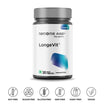
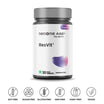
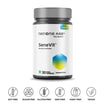
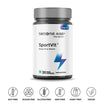
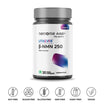
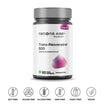
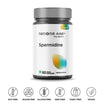
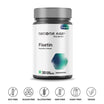
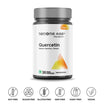
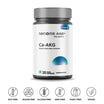
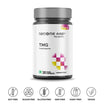
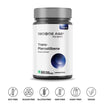

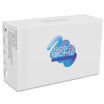
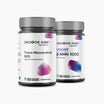
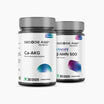
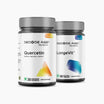


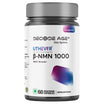
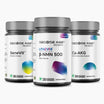
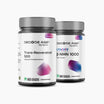
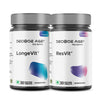
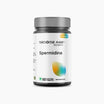
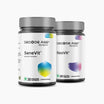
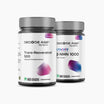

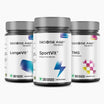
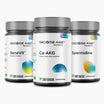
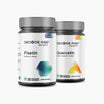

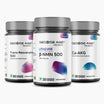
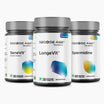
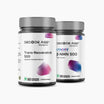



Leave a comment
This site is protected by reCAPTCHA and the Google Privacy Policy and Terms of Service apply.